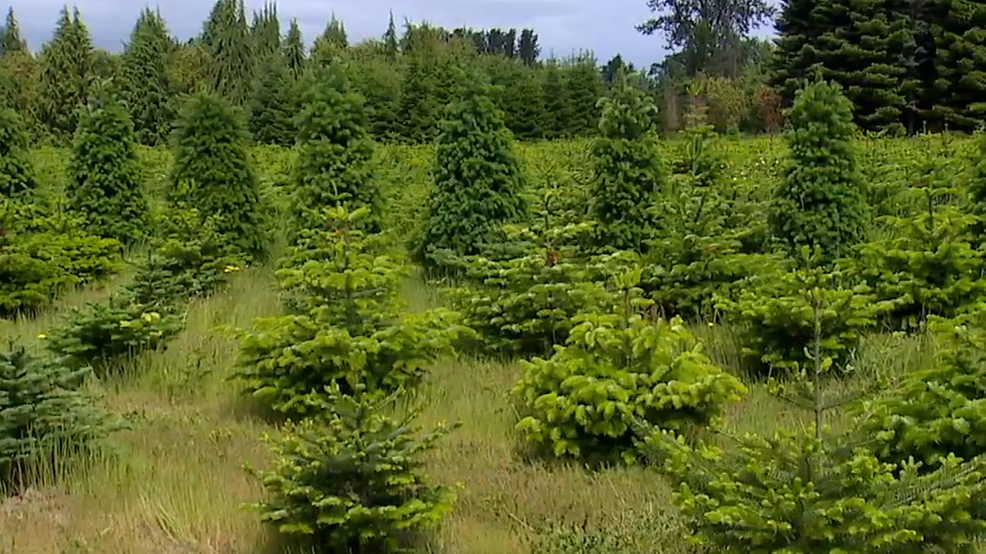
PULLMAN, Wash. — The Christmas tree has long signified the excitement of the holiday season for those who celebrate. Christmas trees are also big business here in Washington state.
Christmas trees are Dr. Gary Chastagner’s life’s work. So much so, he’s earned the moniker, “Dr. Christmas Tree.”
“You have to be able to produce a high quality product. It has to be free of diseases and largely free of diseases,” said Chastagner.
Chastagner leads the Christmas Tree Research Program at the Washington State University Puyallup Research and Extension Center’s Ornamental Plant Pathology Program. It’s a long title, that matches Chastagner’s 45 years, studying Christmas trees. In that time, he and his team, have helped develop healthier Christmas trees that last longer.
“We’ve identified techniques that allow us to identify trees that do not shed needles,” added Chastagner.
Christmas Trees are big business for the Pacific Northwest. Washington is fourth in the nation for Christmas tree production, with nearly 400 Christmas tree farms in the state.
As the climate changes, Chastagner and his team, are trying to figure out how to keep various diseases from affecting trees to help growers and retailers stay in business.
“When you look at the forecast on what the forecast changes are as it relates to climate, it will have an effect on a number of Christmas Tree issues,” said Chastagner.
RELATED: Christmas tree permits now available in Washington
That includes Phytophthora Root Rot, which is is a disease that kills trees. It thrives in saturated root conditions and there’s no fungicide treatment. Common trees like, Noble and Fraser Firs, are particularly susceptible, which limits where they can grow.
“When we talk about soil born pathogens and diseases particularly they’re very difficult to manage in a Christmas tree site,” said Chastagner.
Chastagner and his team have been running greenhouse and field trials, trying to identify other high quality species like Nordmann Fir and Turkish Fir.
“We’ve been able to have a significant impact and improve the ability of growers to produce high quality Christmas trees, from my standpoint that’s what it’s all about,” added Chastagner
As you enjoy your Christmas tree this holiday season, remember the work of “Dr. Christmas Tree.”
